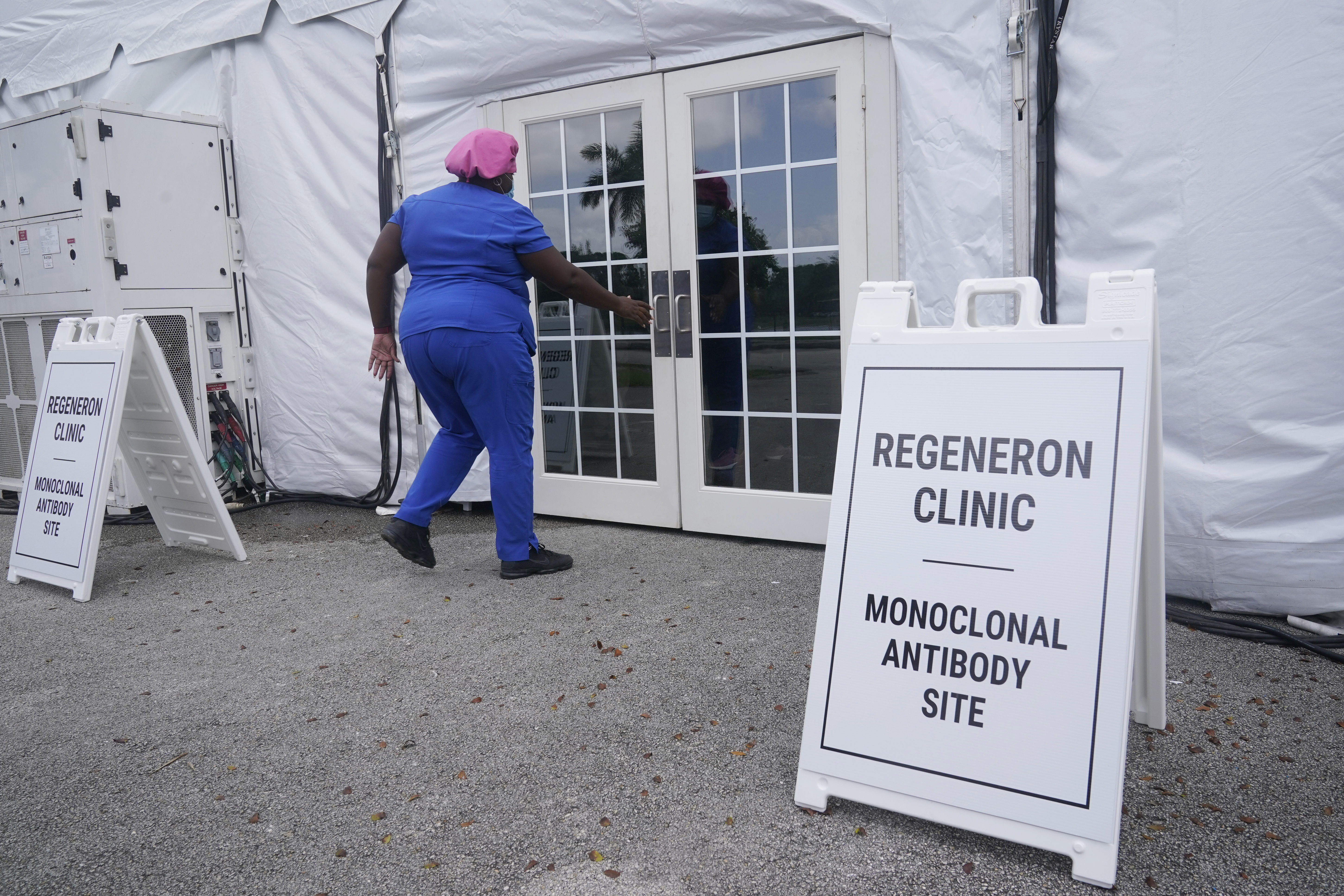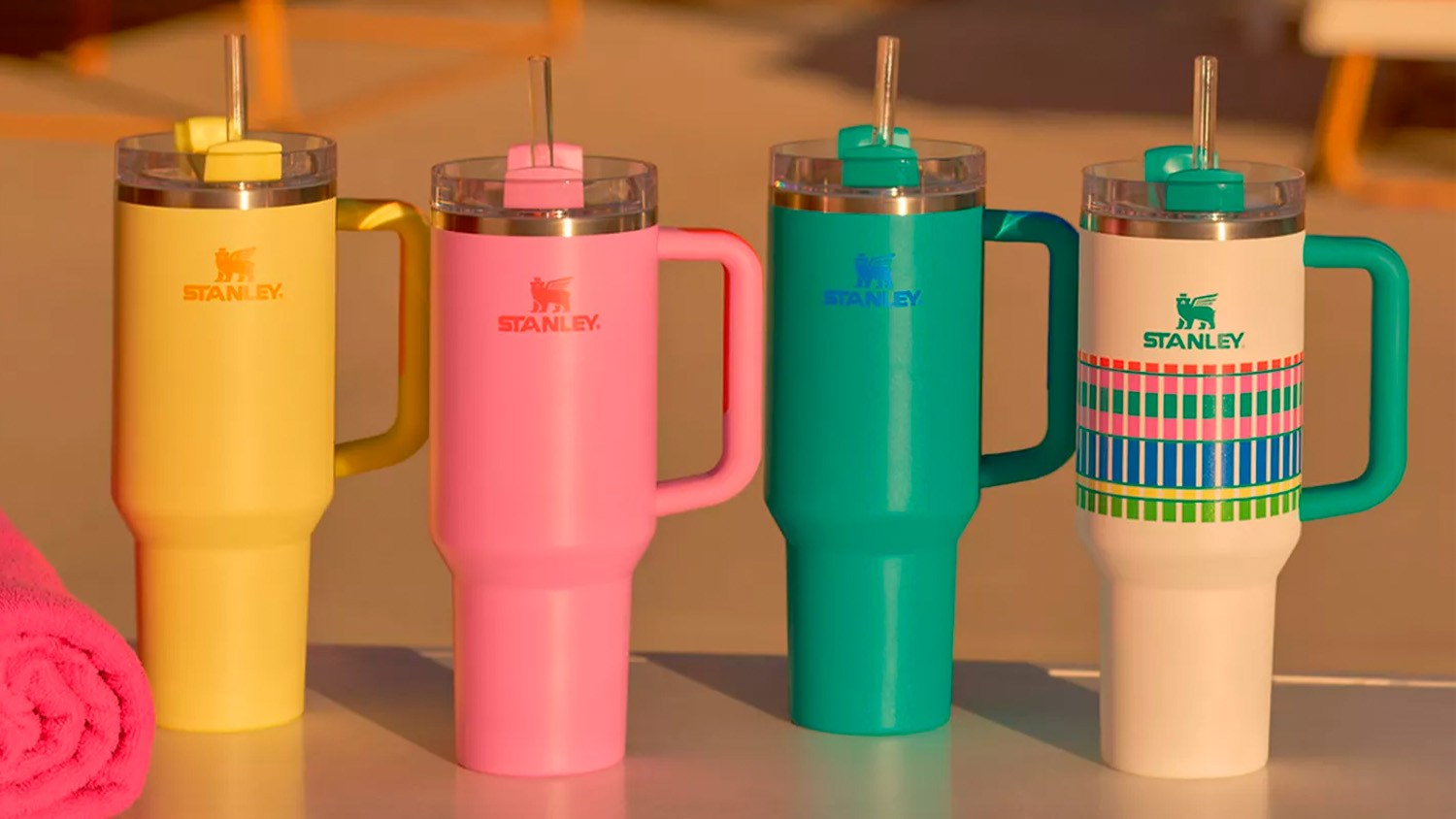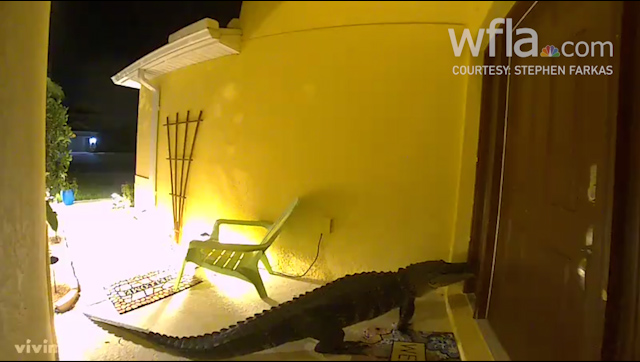TAMPA, Fla. (WFLA) — Florida is closing half its monoclonal antibody therapy sites, forcing COVID-19 patients to seek free treatment at state-run sites further away or go to nearby hospitals and medical centers where the treatment can be costly.
Amid a sharp decline in COVID-19 cases and hospitalizations in Florida, at least 12 of the state’s 25 sites are slated to close less than three months after Gov. Ron DeSantis opened the first site in Jacksonville on August 12.
In an email obtained by 8 On Your Side, a consultant for the Florida Department of Health lays out which sites will modify their operations over the next several weeks since “demand for monoclonal treatment has significantly decreased,” wrote Cindy Dick, Director of Public Health and Policy for CDR Maguire, the contractor providing the treatment at some of the sites.
“A strategy has been developed to guide site decisions and determine where we need to reduce or expand services,” wrote Dick, whose email signature describes her as a Senior Consultant on the COVID-19 Response Team. “The first tier of site modifications is attached [in a spreadsheet]. We will be closing 12 sites over the next three weeks and reducing operating hours at 5 other locations. FDOH will monitor the impact of these closures closely and reevaluate site status weekly. The strategy also includes a process for determining where and when we may need to reopen a site and to what scale.”
The spreadsheet lists 27 total sites opened around the state. Six of them are in the Tampa Bay area — Tampa, Clearwater, Bradenton, Lakeland, Hudson and Sebring.
Seven state sites were closed or targeted for closure by Friday, November 5, including Tampa, Lakeland and Sebring. The spreadsheet lists “no operational change” for the sites in Clearwater and Hudson. Operational adjustments for the Bradenton site are to “Reduce Operating Hours to Tuesday – Saturday & Monitor.”
An emailed news release on Friday from Florida Department of Health Polk County confirmed the Lakeland site closure. Several sources told 8 On Your Side that Hillsborough County reached a deal with CDR Maguire to keep the Tampa monoclonal antibody site open through the end of the year, but that the site would likely be moving. County emergency management officials would not confirm the extension nor the move.
“We are in the process of transitioning the antibody therapy site in Hillsborough County,” read a statement from Hillsborough County Office of Emergency Management. “We anticipate having an update next week.”
One county official said the Tampa site has gone from “170-200 people a day” a month or two ago to “30-40 people a day” last week.
Doctors consistently tell 8 On Your Side the treatments can be life-saving.
The closures of so many sites is significant because it makes it harder for patients to get the treatment for free, an element Gov. Ron DeSantis constantly touted as he traveled the state opening these sites.
Several viewers told 8 On Your Side they’ve been hit with expensive medical bills after getting the treatment at hospitals and medical centers, including one couple in Lakeland who owed nearly $500 after insurance.
The sites were a flashpoint in Florida’s fight against the Delta-strain surge of COVID-19 this summer.
The governor and his office attacked an Associated Press story, and its reporter, for examining whether there were links between DeSantis’ promotion of monoclonal antibodies produced by Regeneron and investments into the company by his largest political donor. DeSantis’ press secretary Christina Pushaw also corrected news stories and reporters on Twitter that did not make it clear the treatment was free at state-run sites.
In September, the Biden Administration said it would cut shipments of the drugs to seven states, including Florida, because they were using 70% of the nation’s supply, leading to fears that Florida might run out of the drug treatments that never materialized as COVID cases dropped precipitously over the past two months.
“The governor has always said that the mAb treatments are free at state-run sites,” Pushaw wrote in an email to 8 On Your Side. “He has worked hard to make sure the free treatment is widely available to all who need it. Florida was the first state to open state-run mAb sites, and we’re proud of that. Since August, those sites have treated over 150,000 Floridians.”
In a response to an 8 On Your Side question asking whether the state could arrange for free treatment at local health departments now that there is not enough demand to keep these large sites open, Pushaw said she “would defer to DOH to see if there are any plans to make changes to the distribution.”
“If there is another COVID surge this winter, we would want to increase the capacity of the state sites – and reopen closed sites if necessary to meet the needs of Floridians,” Pushaw wrote. “With that said, there is a factor beyond our control: the Biden Administration now controls the national supply of Regeneron and rations a certain amount to each state. If Northern states and California have a winter surge this year like they did last year, we might see a strain on the national supply of mAbs that would impact every state’s capacity to deliver this treatment to residents. The Biden Administration should be working with the manufacturers to bolster the supply in preparation for this scenario.”
Pushaw also provided usage statistics for the six Bay Area sites from Aug. 12 through Oct. 11:
- Tampa: 8,100+
- Clearwater: ~6,000
- Lakeland: 6,200+
- Bradenton: ~5,000
- Hudson: 7,600+
- Sebring: ~800
The news of state sites closing comes just as the Tampa Bay Times first reported the cost to open and administer the sites could be up to $245 million, according to state emergency management officials, who are asking lawmakers to stash another $635 million to purchase more treatments in any future COVID-19 surges.





